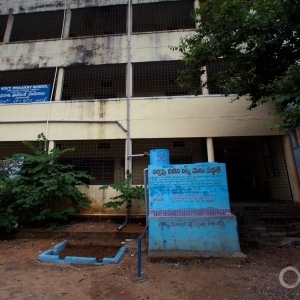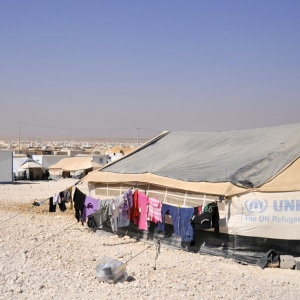The Stream, March 20, 2020: New Court Hearing over Dakota Access Pipeline Begins
The Global Rundown
A new round of litigation over the Dakota Access pipeline begins. PFAS chemicals are detected in the drinking water supply of Indianapolis, Indiana. Coal plants shutter across the western United States, with only 20 plants slated to remain open. Syrian refugees are among the millions of people worldwide at high risk of developing coronavirus due to minimal supplies of soap and water. A team in Kolkata, India, saves the city millions of gallons of water through simple tap fixes.
“In these last eight months we have conducted over 70 drives in several pockets of the city. On our most productive day we fix about 30 to 35 taps.” –Ajay Mittal, one of three team members who have spearheaded efforts to fix broken community taps across Kolkata, India. An estimated 17,000 of these public taps dot Kolkata, one of the few cities in India that does not tax its water. The city estimates that nearly 10 percent of water is lost due to broken or nonexistent taps. Mittal and his team search the city for faulty pipelines, then fix them, preserving countless gallons of water. The Guardian
Latest WaterNews from Circle of Blue
Healthcare Facilities in Developing Countries a High Risk for Coronavirus Transmission — Few healthcare facilities in developing countries have complete water, sanitary, and hygienic services. They are vulnerable to Covid-19 transmission, health experts say.
‘This Is the Time to Act Collectively’: Anticipating Coronavirus Spread, Groups Seek to Scale Up Handwashing and Hygiene Efforts — Supply chains and viral campaigns are up against a global virus.
By The Numbers
49 U.S. coal plants that have closed, or announced plans to do so, since 2010, as coal-burning loses favor as a method of power generation. At the same time, 20 plants in the western United States say they have no intention of closing. Altogether, these coal plants produced nearly 73 million metric tons of carbon dioxide emissions in 2018, the equivalent of emissions from 15 millions typical cars. Los Angeles Times
In context: Navajo Generating Station, a Union of Coal and Water, Shuts Down.
1 million Syrian refugees living in Lebanon. Thousands of other Syrian refugees are scattered across other nations, and the majority live in camps lacking adequate medical, hygiene, and water supplies. Due to these shortages, aid groups warn that Syrian refugees will be one of the populations most vulnerable to the spread of the coronavirus. Reuters
Science, Studies, and Reports
PFAS chemicals have been discovered in the drinking water supply of Indianapolis, Indiana, according to a new study by the Environmental Working Group. The toxic chemicals were detected at a level of 15 parts per trillion (ppt), well below the EPA’s health advisory limit of 70 ppt, but higher than regulations set by some other states. Indiana lawmakers are currently crafting legislation to regulate PFAS in the state, but so far, there are no laws specifying permitted levels of the chemicals. Indianapolis Star
In context: EPA Says It Will Regulate Two PFAS Chemicals in Drinking Water.
On the Radar
The U.S. District Court for the District of Columbia is hearing a new round of arguments over halting the controversial Dakota Access Pipeline. The hearing pits the U.S. Army Corps of Engineers and pipeline developer Energy Transfer Partners LP against lawyers for the Standing Rock Sioux Tribe. The tribe fears the pipeline could have detrimental impacts of the environment, a claim that pipeline proponents deny. Judge James E. Boasberg said the pipeline’s future will likely be determined within the next 10 days. Bloomberg Environment
Kayla Ritter is a recent graduate of Michigan State University, where she studied International Relations and Teaching English to Speakers of Other Languages. She is currently based in Manton, Michigan. Kayla enjoys running, writing, and traveling. Contact Kayla Ritter







Leave a Reply
Want to join the discussion?Feel free to contribute!